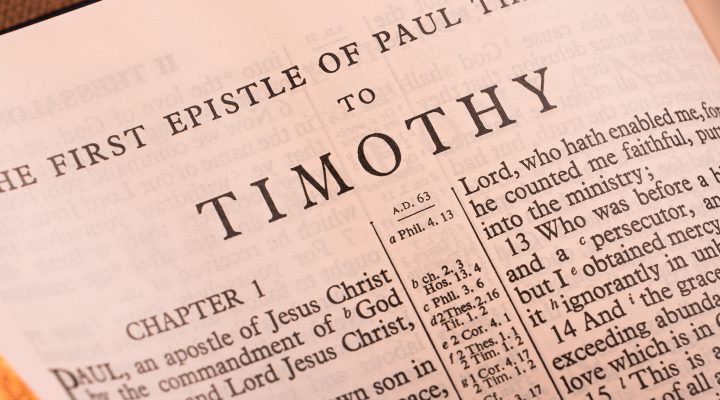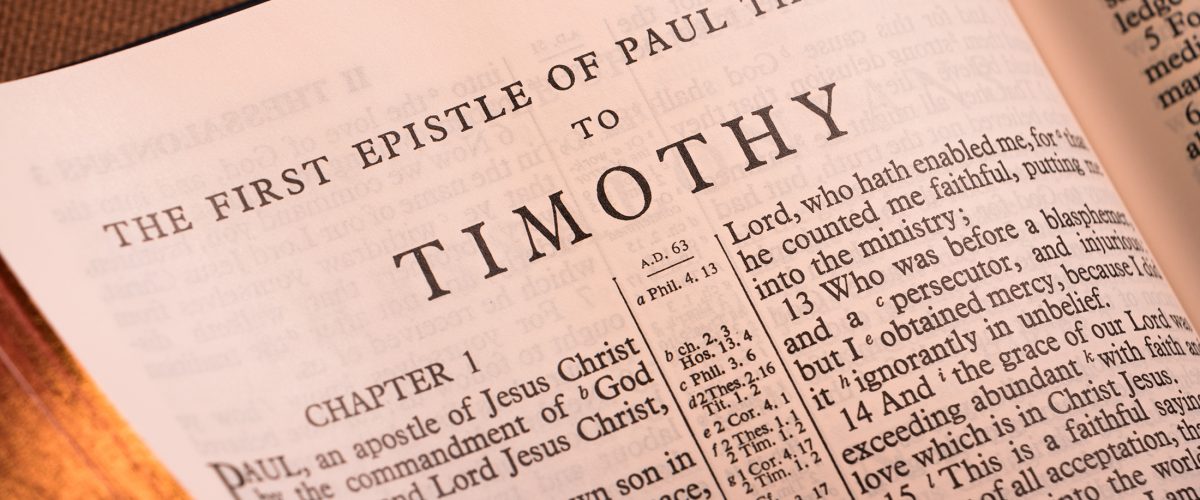The Southern Baptist Convention somewhat surprisingly failed to pass the proposed Law Amendment that, if affirmed, would have changed the SBC Constitution to place restrictions on Southern Baptist churches hiring or appointing women to any staff position with the title “pastor” attached to it.
Such a move was meant to draw a thick line between churches who were “in friendly cooperation” with the SBC and those who were not. It also was meant to reassert the claim that masculinity is an essential ingredient in the biblical qualifications for a pastor.
In anticipation of the Law Amendment vote, language about “pastoral qualifications” has bounced around Baptist corners of the internet over the last year. Decades-old debates have been reignited over the place of gender in the pastoral epistles, what women can and cannot do according to the Bible, and the line between cultural and eternal prescriptions.
“As a cultural historian, I’ve noticed these discussions almost always miss an essential ingredient.”
But as a cultural historian, I’ve noticed these discussions almost always miss an essential ingredient — one we must include any time we speak about gender in the past. That ingredient? An acknowledgement of the way class and social status shaped men’s and women’s experiences and opportunities.
Look again
Look again at the qualifications for a presbyter/elder/bishop in 1 Timothy 3:1-7, the source of the so-called “pastoral qualifications” referred to frequently. What do you see? An episkopos must be:
- Above reproach
- Married
- Respectable
- Hospitable
- Not greedy
- An apt household manager
- Reputable to outsiders
At its most basic level, these qualifications align very closely with the social expectations of the respectable Roman male citizen, a householder with progeny and property, the paterfamilias.
The virtues listed in 1 Timothy 3 simply were not accessible to all people — not even to all men. Hospitality, for instance, was not merely a generous attitude or willingness to entertain guests in space. It was explicitly connected to material conditions. The promise of protection, shelter, a shared meal and the exchanging of gifts all implied a certain status and standard of living.
In short, 1 Timothy argues the overseer of the church needed to be a proficient and well-respected overseer of his estate in all its facets. Church leaders in this model were pulled from what James Jeffers calls the “respectable populace” of the Roman Empire — not the elites of society, but those with means and networks within the community. Honor, status, respect, family, material means — evidence of moral virtue and practical leadership abilities set the table for a person to obtain authority within the church.
Slaves and young men excluded
Who would be restricted from this position of honor in the church? As I’ve noted elsewhere, certainly slaves would not have made the cut for early church leadership — at least not in the eyes of 1 Timothy’s author. Under Roman law, slaves and servants were restricted from legal marriage, did not own property, certainly did not govern their own household, and by virtue of their position had no reputation to speak of. To elect a slave as bishop of a house church in first-century Ephesus may have placed the church at risk, earning a reputation as a site of anarchy.
“If enslaved persons would not be eligible for service as an elder, neither would many young men.”
But if enslaved persons would not be eligible for service as an elder, neither would many young men. The Roman patria potestas — the social understanding that the father of a household retained authority over even his adult children and grandchildren — indicated that for many young men, even from well-respected families, they were not ultimately in charge of their wives or children, not householders in the technical sense, as long as their fathers were living. Childless men, too, or married men without the economic means to manage a familia, would likely be excluded according to 1 Timothy, and for similar reasons — they were unproven in their abilities.
Relationships, not rules
On the other hand, ancient societies’ expectations weren’t codified on the basis of rigid, one-size-fits-all principles. As Brandon O’Brien and Randolph Richards write in their book, Misreading Scripture with Western Eyes, for ancient societies “relationships (not rules) define reality.” In many cases, the transgression of what we might expect as a social norm was dismissed or even praised if certain relational expectations were preserved.
For example, Deuteronomy through Judges spend significant energy warning Israel not to intermingle or intermarry with foreigners. Then along comes Ruth, a Moabite. According to Deuteronomy 23, God had barred her people from God’s presence, and yet she marries one of the most prominent men in the city and is included in the royal bloodline.
As the story of Ruth illustrates, it was commonly understood in the premodern era that people of exemplary virtue could explode predetermined categories or “natural” hierarchies. So, for instance, the fourth-century Apostolic Constitutions, a book of church order from Roman Syria, prohibited the ordination of slaves to the bishopric because to do so would “subvert” the natural order of the family. “But,” they continue, “if at any time a servant appears worthy to be ordained into a high office, such as our Onesimus appeared to be, and if his master allows it, and gives him his freedom … let him be ordained” (emphasis added).
The general consensus, that slaves shouldn’t be ordained because of the social order, was reinforced and simultaneously relativized in the same paragraph because it was well-known that exemplary leaders could arise from unexpected circumstances.
“Well-to-do women exerting influence in the church and society was quite common.”
While enslaved people serving as bishops would have been rather unexpected, well-to-do women exerting influence in the church and society was quite common. This is because in many instances status or social position were more immediately relevant than the person’s gender in determining community hierarchies.
This reality creates interpretive issues for complementarians who, hyper-focused on gender, have boiled authority and submission down to a male/female binary and simplistic concepts of “creation order.”
For instance, in many situations, Christian men would have been expected to submit to Christian women on the basis of a social distinction. Given the domestic arrangements within the Roman household and the exhortation that children obey their parents (which was a pagan expectation as well), many times adult sons would have remained in subjection to their mothers.
Lydia
Or consider the early church leader Lydia in Acts 16. We may identify her as an example of what Richard Saller identifies as a female paterfamilias, a woman as a legal household head and owner of property. There are numerous examples of female householders in Roman society, and Lydia fits the mold quite well.
In her chapter “The Women Householders of Acts,” Margaret MacDonald writes that Lydia’s account emphasizes “independence and management” rather than conventional literary feminine virtues. Luke explicitly includes the detail that she “and her household” were baptized. As MacDonald would have it, Lydia exhibits household management and extends hospitality to Paul, instructing him to “come to my house and stay” (Acts 16:15).
“Paul … would have been enjoining the adult male slaves in Lydia’s house to submit to her as their authority.”
As a householder who initiates the baptism of all those in her household, in all likelihood Lydia had servants/slaves. Given her status as the head of the household, when Paul writes that Christian slaves are to obey their masters, he would have been enjoining the adult male slaves in Lydia’s house to submit to her as their authority.
Junia
Some women in the Bible were given access and influence on a level that the majority of men — perhaps intelligent, ethical, doctrinally sound men — would not have been offered on the basis of social status. Consider Junia’s commendation by Paul in Romans 16.
Evangelical scholars have puzzled over her status as “apostle” in the Roman congregation due to her gender. But when we account for the complex matrix of social markers that helped ancients order and give meaning to their reality, we ought not be surprised.
Junia was not simply a woman, just as Paul was not simply a man. She was a believing Jew and as such, one who had been entrusted with the oracles of God. Jewish identity was an important status marker in the early church (see Ephesians 1-2). She was a commissioned eyewitness of Jesus’ resurrection, an apostle. She was an elder in the faith, not a “novice” in the words of 1 Timothy — Paul says she and her husband were in Christ before him.
All these facts were interpreted as immediately relevant to her position of authority within the church. The fact that she was a woman was not.
Over time, the relationship changed
Let’s return briefly to the qualifications for an overseer in 1 Timothy. I can confidently say that, in the mind of the pastoral author of 1 Timothy, men were the ideal candidates for service as overseers or bishops. But this is mainly because in the first-century world, “respectable” men were far and away the most likely to have the education, the resources, the experience and the social capital to fulfill the duties 1 Timothy’s author thinks necessary.
Moreover, placing respectable men with good public reputations in positions of religious governance would help ease potential tensions between the Ephesian church and its non-Christian neighbors.
At the same time, it’s clear that some churches did not follow the prescriptions laid out in 1 Timothy. Over time, the relationship between Christianity and the Empire changed. The economic and political situations changed. Cultural norms, educational processes and ritual emphases changed. Slaves were more frequently ordained as ministers. Celibate men with clerical education who eschewed any personal property became the ideal candidates over married men with material resources and worldly experience.
“In some communities, women were enlisted as presbyters, beloved by their congregations and memorialized in burial inscriptions.”
In some communities, women were enlisted as presbyters, beloved by their congregations and memorialized in burial inscriptions. Some women — at least of the highest social station — could even be recognized as bishops. In our own context, evangelical churches frequently ordain unmarried men or men without children.
Is it the case that the churches in all these circumstances simply disobey Scripture? Are they simply flouting 1 Timothy’s instructions on how to pick pastoral candidates? Or is it possible that the criteria for vetting ethical, pious, and experienced leaders differs among different cultures and in different historical contexts?
For the last half century, Bible-believing Baptists have obsessively repeated the question, “What were women allowed to do in the Bible?” I suggest we begin responding with a new question: “Which women?” In other words, how does our understanding of the text change if we began to read this and similar passages looking for class language instead of gender language?
It may be that answering this question would allow Southern Baptists to look at passages like 1 Timothy 3 with new eyes. It might help push them out of some of the exegetical ditches they’ve veered into time and again. Perhaps they’d begin to see the way cultural structures shaped the imaginations of biblical authors.
And maybe — just maybe — Southern Baptists would start to interrogate how their own cultural assumptions shape the way they read the Bible.

Jacob Randolph
Jacob Randolph serves as assistant professor of the history of Christianity at Saint Paul School of Theology in Oklahoma City. He is a Ph.D. graduate of Baylor University.
Related articles:
I knew the truth about women in the Bible, and I stayed silent | Opinion by Beth AllisonBarr
The invisibility of women in the Bible | Opinion by Grace Ji-Sun Kim
To refrains of ‘But the Bible,’ I respond, ‘But the women’ | Opinion by Mandy McMichael


